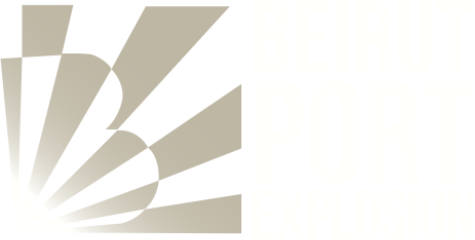Security circumstances that coincided with the entry of the nitrate shipment
It is noteworthy to mention that the ammonium nitrate shipment reached the port of Beirut and was unloaded amid very delicate security circumstances in the backdrop of the Syrian war and the involvement of Hezbollah in it, which impacted the internal situation in Lebanon with the rise of suicide attacks carried out by fundamentalist groups. Therefore, the security forces were supposedly extra cautious at the time, particularly concerning monitoring explosives that could be used by fundamentalist groups or combatants in Syria. Back then, army checkpoints were subsequently set up along the entrances to the southern suburb of Beirut.
On 28 April 2012, one year before the arrival of the ship Rhosus, a ship loaded with arms sailing from Libya across Egypt to the port of Tripoli was confiscated by the Lebanese navy.
On 23 August 2013, a few months before the arrival of the ammonium nitrate shipment, two explosions targeted Al-Salam and Al-Taqwa mosques in Tripoli.
Meanwhile, on 19 November, when Rhosus entered the Lebanese territorial waters, two suicide bombers carried out an attack near the embassy of Iran, causing deaths and injuries. On 22 November, by the time Rhosus had docked at Beirut seaport, the Lebanese army dismantled a car rigged with explosives on the northern Bekaa road.
On 27 December 2013, a car bomb struck the convoy of Former Minister Mohamad Chata in the central district of Beirut. The blast instantly killed six people and injured 70 others.
On 21 January 2014, an explosion took place in a southern Beirut suburb, killing five people and wounding 48 others. The “Islamic State” also known as Daesh has claimed the bombing.
On February 1, a terrorist explosion targeted a petrol station in Hermel and it was claimed by Al-Nusra Front. On February 3, a suicide bomber blew himself up inside a public transportation bus.
During and after these events, the Supreme Defense Council convened several times. One of them took place on 20 November 2012, following the attack near the embassy of Iran, and another one on 28 December, following the assassination of former minister, Mohamad Chatah.
Moreover, the council convened on 26 March 2014 to come up with a security plan in Tripoli and Bekaa, and on 18 May 2014 to discuss the security situation in the country. Another meeting was held on 26 June 2014 after a suicide bomber blew himself up in Dahr Al-Baydar. The last two meetings coincided with a letter sent from the General Director of the Lebanese General Security to each of the Lebanese president, the prime minister, and the minister of interior regarding a ship seized by judicial order and loaded with dangerous material (tons of ammonium nitrate), yet it was not included on the Supreme Defense Council’s agenda.
Following the end of President Suleiman’s term in office, several security meetings took place at the Grand Serail between July 2014 and June 2016, the period during which the ammonium nitrate shipment was offloaded. By the end of 2015, it was certain that the Lebanese army learned about the situation, but didn’t seem to include the issue on the agendas of any of its meetings.
